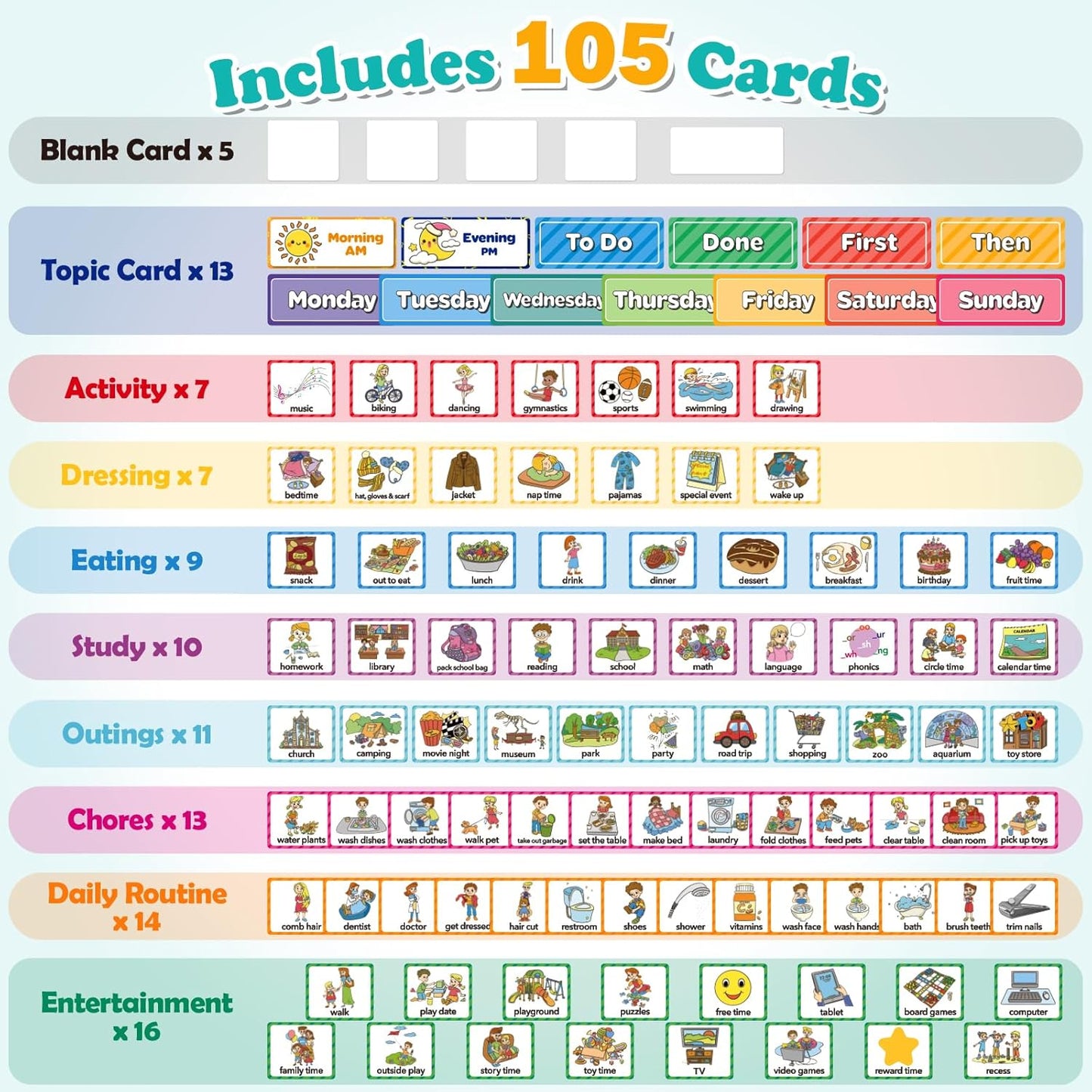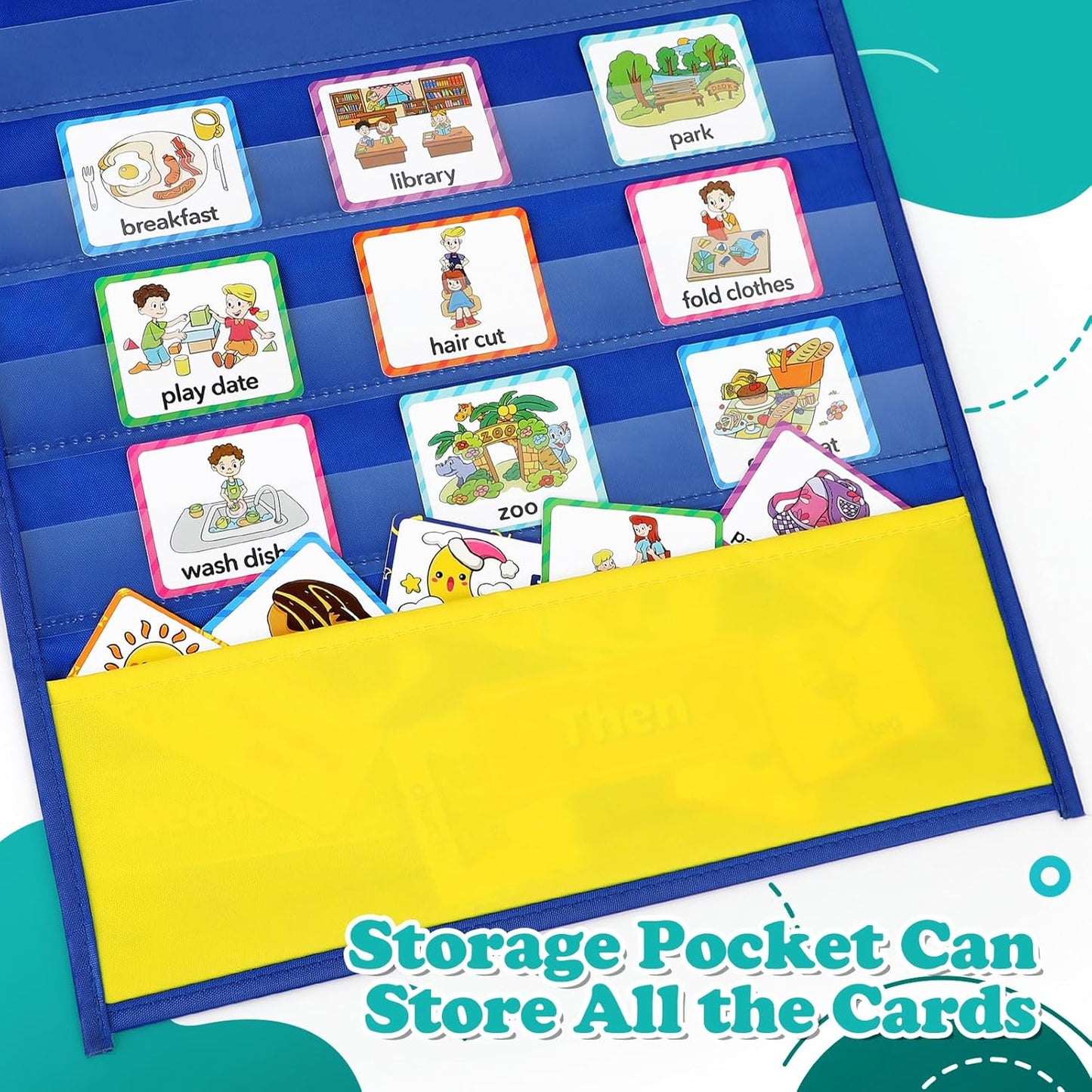Assistive Tech: As Easy as 1, 2, 3!







The Torlam Visual Schedule for Kids is a low cost assistive technology designed to support children in developing structured routines, improving communication, and gaining independence. Featuring 105 visual schedule cards and a durable pocket chart, this tool is ideal for children with autism, ADHD, speech delays, and other special educational needs, making daily tasks and transitions manageable and engaging.
Key Features:
Comprehensive Visual Schedule Cards: Includes 87 pre-printed cards covering chore charts, outing activities, studying, eating, and more. Additionally, 13 topic cards help organize morning and evening routines or serve as daily/weekly planners, while 5 blank cards allow full customization to meet unique needs.
Magnetic Versatility & Easy Installation: The schedule board features two magnetic strips for easy attachment to fridges or whiteboards. It also includes two over-the-door hooks, making it versatile for use in various spaces at home or school.
Inclusive & Accessible Design: Specifically designed for children with autism, ADHD, Asperger's, or speech and language delays, this visual schedule tool provides clear communication and fosters independence. It’s an essential learning and behavioral support tool for nonverbal children and those with developmental needs.
Convenient Storage Pocket: A large, yellow storage pocket on the chart provides an organized way to keep flashcards safe and accessible, eliminating concerns about losing or misplacing cards.
Durable, Long-Lasting Materials: Made from sturdy nylon fabric and waterproof PVC cards, this hanging pocket chart is built to withstand daily use in homes or classrooms, ensuring long-term functionality.
The Torlam Visual Schedule is a low cost assistive technology that simplifies daily routines and task management for children with disabilities. Its visual and magnetic design provides clear, structured guidance to reduce anxiety, improve focus, and encourage independence. This tool is particularly effective for nonverbal children, offering a means of communication and a path toward self-regulation and confidence.